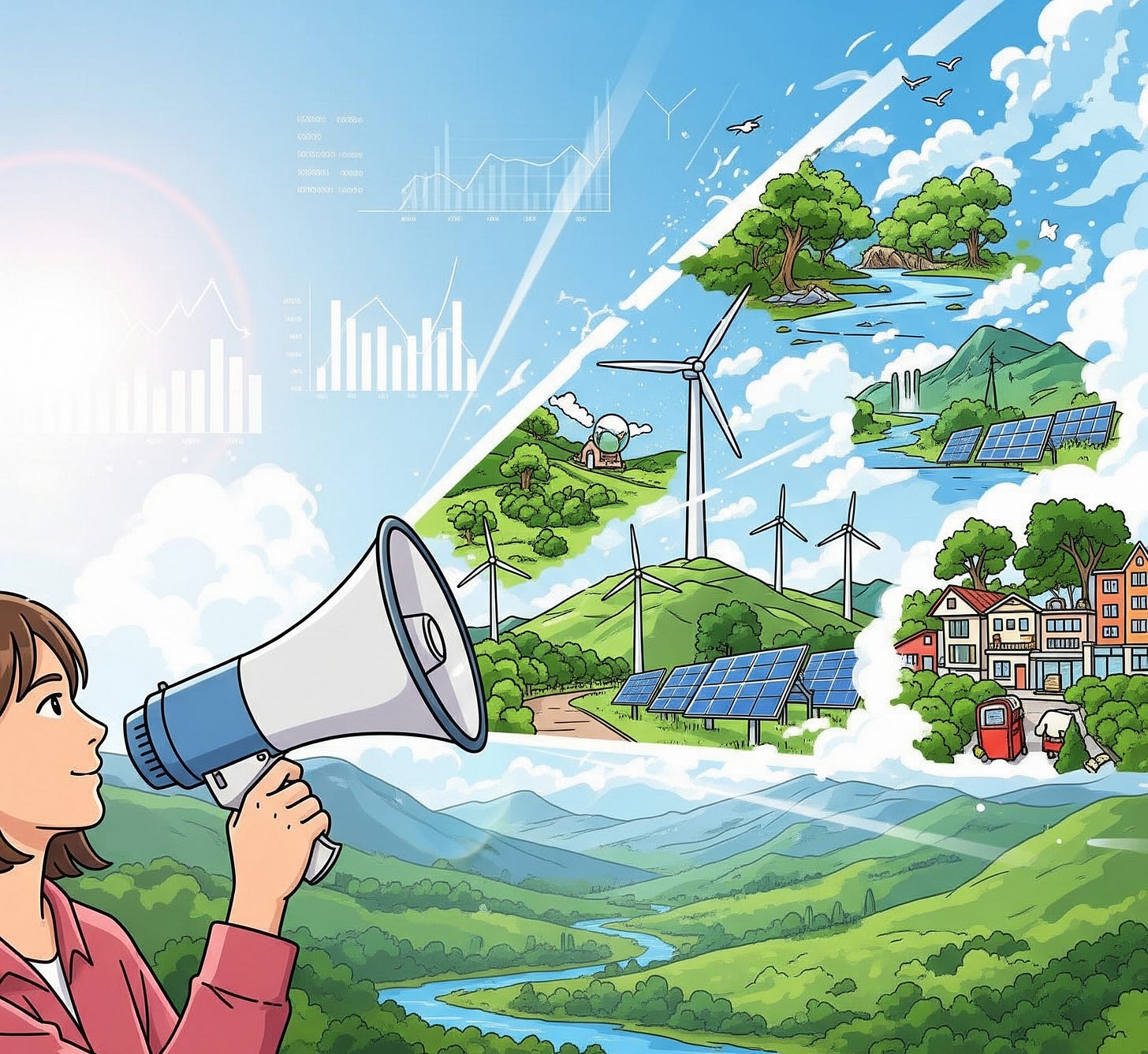Facts Aren't Enough! Sustainability Needs Better Storytellers.
From Sustainability Delivery Summit Chicago 2025: our data is strong, but our narratives are failing. It's time to speak the language of human connection.
The most important thing I heard at the Sustainability Delivery Summit in Chicago wasn’t about carbon credits or new regulatory frameworks. It came up during a roundtable discussion early in the program, when Bob Beinstein from AECOM made a comment that stopped me in my tracks. He said, plainly, that we in the sustainability field need to do a much better job of telling our story.
He wasn’t being rhetorical. He wasn’t making a side point. He was naming something essential that we’ve all felt but often overlook.
That idea came up again in several panels and side conversations. Different people, different backgrounds, same underlying message. Our communication isn't working. Not because we're unprepared or under-informed, but because we’ve gotten used to speaking in ways that don’t really land with anyone outside our own circle.
We assume that because our work is critical, the urgency will carry itself. But it doesn’t. Not on its own.
What we’re doing is complex. It involves science, policy, engineering, logistics, behavioral economics, all of it. But complexity isn’t the same as clarity, and it certainly isn’t the same as connection. We've invested so much energy in making our methods rigorous that we forgot to make our messages relatable.
You can see the results everywhere. Great ideas get ignored. Strong data goes unread. Projects with real potential get passed over because no one understands why they matter, or who they’re meant to help. It's not that people don’t care. It's that we're not reaching them.
We have to stop thinking of storytelling as a side task. It’s not something you outsource to a comms team after the real work is done. If we’re serious about scaling solutions, we need to learn how to make people care. Not with drama, not with hype, but with stories that feel real and grounded. Stories that carry weight because they speak to lived experience.
There’s no shortage of good material. We have communities transforming their energy systems from the ground up. We have scientists developing treatments for contaminated water that actually work in the field, not just the lab. We have policy wins that came from partnerships people thought were impossible. But those stories rarely make it past conference circuits or grant reports.
When they do surface, they’re usually stripped of detail. We rush through them. We present outcomes but skip over the struggle. Or we bury the people behind the work under layers of technical jargon.
That’s not just a missed opportunity. It’s a strategic mistake. Because while we wait for the data to speak for itself, other voices are shaping the public narrative. Some of those voices are misleading. Some are well-meaning but poorly informed. Either way, they’re being heard more than we are.
We need to fix that. Not by simplifying what we do beyond recognition, but by making room for language that invites people in. That means talking about values, not just variables. It means writing and speaking like we’re trying to start a conversation, not close a debate.
At the summit, this wasn’t just a passing thought. It felt like a collective realization. That if we’re going to have any shot at turning technical progress into real, lasting change, we have to connect differently. That doesn’t mean diluting the science. It means telling the truth in a way that makes people care enough to act.
Because if they don’t see themselves in the work, they won’t fight for it. And if we don’t learn how to tell the story, someone else will tell it for us.
Probably badly.
Links:
Sustainability Delivery Summit: https://sustainabilitydeliverysummit.com/chicago/





What could be the actual steps to communicate science?
I am working in the field of science communications as simplifying concepts for the general and non-specialized audience (Kids, teenagers, college students). Also, I am a MSc student and RA, there is a wide gap between the 2 roles in the aspect of "communication".
In academia, it's about publishing and moving on to the next idea to publish, but what's the impact irl? They don't care, it's not our problem, it's for the industrial scale and it's not applicable in here, and such reasons!
But in the science communication job, there is the science we already know, and we're trying our best to deliver it accurately in a fun, relatable, and educational way. WHY there is NO such thing in academia!
How to fill the gap between doing research in advanced science and delivering this science!
And I am not talking about writing a good article or storytell your work in your publication. I am asking about the researcher and non-specialized community or those in the industry need to communicate with each other more and more.